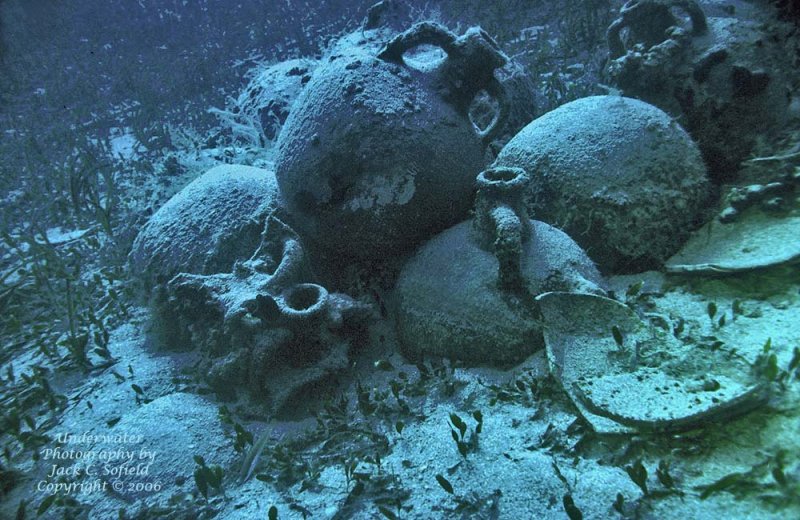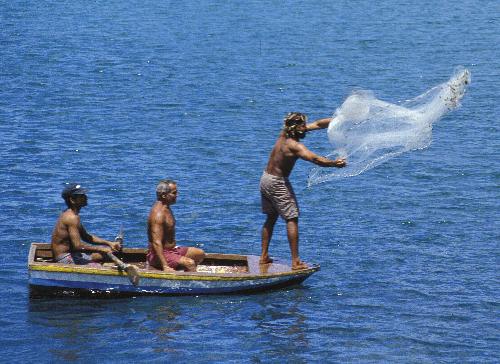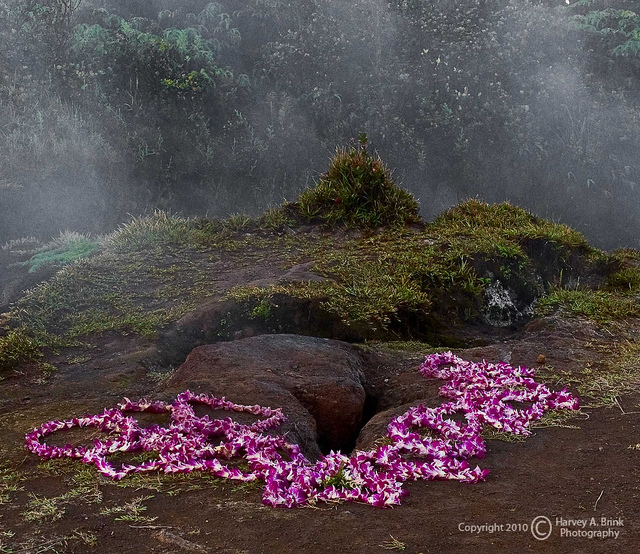Maritime Traditions

Basque whaleboat replica built by Albaola
Maritime traditions are as varied as the human experience of the sea. Some traditions are tangible, many are intangible, but all express the spirit of our interactions with the sea over time.
Many maritime customs and traditions arise from the elemental activities of daily life on the sea. The vast realm of expression around our human experience of the sea is less tangible, but equally vibrant. People create poetry and music, literature and mythology, games, and religious ceremonies, all related to the sea. Language and oral tradition, festivals and community worship, superstition and belief all contribute to maritime traditions.
Here we present a selection of maritime traditions, documented visually and in a variety of other ways. Please contact us to suggest relevant sites.
- Archaeology
- Boats and Boatbuilding
- Fishing and Seafaring
- Maritime Material Culture
- Music and Poetry
- Religion and Mythology
- People of the Sea
- Rituals, Ceremonies, Festivals
- Traditional Maritime Industries

Archaeology
Advisory Council on Underwater Archaeology
The ACUA has been at the forefront of underwater archaeology for more than 50 years. The ACUA serves as an international advisory body on issues relating to underwater archaeology, conservation, and submerged cultural resources management. It is working to educate scholars, governments, sport divers, and the general public about underwater archaeology and the preservation of underwater resources.
Museum of Underwater Archaeology
The online Museum of Underwater Archaeology (MUA) mission is to assist and promote the use of the Internet by ethical professional, student, and avocational underwater archaeologists. The MUA helps underwater archaeologists present their research to the general public by creating web-based museum-style exhibits. MUA supports and follows the ethical principles of the Society for Historical Archaeology.
Boats and Boat Building
Traditional Boats East and West
Boatbuilder, writer and researcher Douglas Brooks has a special interest in traditional Japanese boatbuilding. In the summer of 2013 he was building a traditional Japanese boat as part of the Setouchi International Festival in Takamatsu, Japan. Follow his blog here.
And read more about the Setouchi Triennale 2013: "An Art and Island Journey Through the Seasons on the Seto Inland Sea" here.
Watertight Bulkhead Technology of Chinese Junks
Watertight bulkhead technology in Chinese junks was a significant invention in the history of navigation. Ships salvaged in the 1970s in the Quanzhou area of Fujian providence technology widely used in the 12th century. This 9:21 video uploaded by UNESCO, explains the core technologies of the process, and the vanishing numbers of masters who carry the knowledge with them.
Nova Scotia Schooners
Lunenberg, Nova Scotia has a rich maritime history going back 250 years, but that also has an eye toward the future. Nova Scotia Schooners is a half hour documentary that explores the resurgence of interest that has taken place during the past decade in these traditional wooden vessels.
National Historic Ships
National Historic Ships is dedicated to the immediate issues concerning historic vessels in the UK, and to addressing questions relating to the support infrastructure for historic ships, their potential for contributing in the wider economic, social and community context, and by maintaining a watch list of vessels abroad with potential UK significance. Visit also their sister site The Shipshape Network - the U.K. wide network for ship conservation - for information about suppliers and materials to maintain your vessel.
"Architecture of the Rabelo," Documentary Film on Boatbuilding (in Portuguese)
A graceful shell-built boat particular to Portugal's River Douro is the subject of this 1992 documentary film, which records in detail a vanishing tradition. A photographic record of the filming, by Carlos Romao, is presented as a visual blog. Available on DVD with soundtrack in Portuguese, English and French; for more information, see http://www.sinalvideo.pt/.
Albaola is an association located in the Basque Country which works in the fields of culture and maritime heritage. Their aim is the development of maritime heritage through research into and recovery and diffusion of tangible and intangible maritime heritage. They put into practice theoretical knowledge of Basque maritime heritage, and involve the general public in activities of heritage interest.
The Apprenticeshop
Training craftsmen and women in the art of traditional boabuilding and seamanship since 1972, the Apprenticeshop is recognized as one of the finest and oldest traditional boat building schools in the country.
Fishing and Seafaring
Fishing After the Tsunami in Sri Lanka
Photographs by Agostino Pacciani
Mekong Fishermen
Photographs by Mario Wight
Nova OnLine: The Vikings: Secrets of Norse Ships
Explore the legendary abilities of Viking seafarers, their culture and beliefs; includes filmed tour of a Viking village.
Traditional Whaling in Indonesia
Photographs by Stuart Isett Lamalera is one of the last places where traditional whale hunts exist, using tools little changed in 200 years.
Traditional Maori Fisheries
The spiritual, cultural, and conservation approach of Maori people to their fisheries, with links to a history of New Zealand fisheries and modern fisheries information.
Village by Village: Recovering Fiji's Coastal Fisheries
Profiles traditional fishing culture and how residents use tradition to address contemporary issues
Papua New Guinea: Madang Lagoon fishermen and lifeways
This Locally-Managed Marine Area in Northern Papua New Guinea uses cultural considerations to manage both fisheries and food resources; links to other LMMAs around the world.
Cultural Traditions for Marine Conservation
The peoples throughout the Pacific Islands used customary practices of marine protection in line with traditional spiritual beliefs in order to counter marine resource depletions.
MASIFUNDISE: The Life and Culture of Traditional Artisanal Fishers (South Africa) Traditional Fisheries Management Practices in Pacific Island Communities
Pacific island communities have long practiced traditional management systems such as seasonal bans and temporary no-take areas that can be adapted for modern use. The peoples throughout the Pacific Islands used customary practices of marine protection in line with traditional spiritual beliefs in order to counter marine resource depletions. Most Pacific islands still have some form of community marine tenure either legally enshrined or informally recognized.
Maritime Material Culture
For links to maritime museum websites and exhibitions, visit the W2O's Maritime History section. For additional links to maritime museum websites and exhibitions, visit the W2O's searchable online database. Tick the box for 'Maritime History'.
Maritime Heritage Net (in French) Brittany's maritime culture website has a section devoted to heritage sites (sites du patrimoine). Under revision, January 22, 2009.
The Northern Neck Chanty Singers
In this 17:20 video, the Northern Neck Chanty Singers, a group of fishermen from Reedsville, VA, sing several traditional songs of the menhaden fishing industry, songs that the fishermen use to coordinate the work of hauling nets and other tasks associated with fishing menhaden in the Virginia waters at the mouth of the Chesapeake.
Fisher Poets' Gathering, Astoria, Oregon
The Gathering brings together men and women from fishing-related industries to read their poems and stories, sing their songs, share and socialize in this historic Northwest fishing and canning town. Clips from readings, poems, images, and more.
Documentary film about the Fisher Poets' Gathering
This film by Jennifer Brett Winston profiles a unique breed of commercial fishers whose experience makes its way into vivid poetry and stories. Website includes screenings, ordering information, and the story of making the documentary.
Religion & Mythology
IceWisdom International
The Arctic ice cap is melting at an alarming rate, threatening the world with consequences we can barely imagine. We’re faced with the moral responsibility to direct ourselves toward a more positive spiritual and planetary evolution. IceWisdom International is committed to preserving Mother Earth and all who live on her by creating Healing Circles, and through participation in international symposia and environmental preservation and educational programs.
Mami Wata - Arts for Water Spirits in Africa and Its Diasporas
The National Museum of African Art presents the water spirit Mami Wata (Mother Water), at once beautiful, protective, seductive, and dangerous, she is celebrated throughout much of Africa and the African Atlantic. A rich array of arts surrounds her, as well as a host of other aquatic spirits--all honoring the essential, sacred nature of water. Mami Wata is often portrayed as a mermaid, a snake charmer, or a combination of both. She is widely believed to have "overseas" origins, and her depictions have been profoundly influenced by representations of ancient, indigenous African water spirits, European mermaids, Hindu gods and goddesses, and Christian and Muslim saints. She is not only sexy, jealous, and beguiling but also exists in the plural, as the mami watas and papi watas who comprise part of the vast and uncountable "school" of African water spirits.
Click here to view the New York Times' Slideshow: An African Mermaid
People of the Sea
Here we present a sampling of websites and image portfolios that document people who live by the sea, illustrating maritime culture as it is lived today, often with deep roots in the past.
Pacific Voyagers Foundation
The Pacific Voyagers Foundation is an organization that seeks to create a sustainable future for Pacific Island Nations by merging ancestral values and voyaging traditions with modern technology to address present and future challenges. Through its four pillars: Inter-Island Transport, Fisheries Management, Renewable & Fossil fuel Free Energy & Food security, the Pacific Voyagers work to create a positive synergy through which Pacific Islands self manage their resources while at the same time embracing their cultural heritage.
Vanishing Sail: A Caribbean tradition on the verge of extinction
Through a collection of dramatic sailing scenes, rare archival footage and unprecedented interviews with the last Caribbean Sea Captains, Vanishing Sail seeks to preserve the legacy of boatbuilding in the Grenadines, introduced by Scottish settlers in the 19th century, and hopes to revive interest in the art form before it expires on the heels of progress.
Voices of the Fisheries: Oral History Database
Oral history interviews are a powerful way to document the human experience with our marine, coastal, and Great Lakes environments and our living marine resources. Each story archived here provides a unique example of this connection collected from fishermen, their spouses, processing workers, shoreside business workers and operators, recreational and subsistence fishermen, scientists, marine resources managers, and others --all among NOAA's fishery stakeholders.
Memorynet: Communities of the Sea in the North East of England
Memorynet collects oral histories, photographs and images exploring the lives of seamen, fishermen, coastal communities, divers, surfers, merchants, boat builders, rescue services and marine engineers. The collections focus on themes of Adventure, Childhood, Community, Danger, Environment, Lifestyles, Living Conditions, Music and Poetry, Roles and Routines, Skills, Sounds and Smells, Superstitions, Traditions, Travel, Wartime, Women, Work.
Arctic Studies Center, National Museum of Natural History, Smithsonian Institution
Northern peoples such as Japan's Ainu, Sweden's Saami, the Vikings, and Alaska natives are profiled in online exhibitions presented at the Center's website, along with an Arctic resources page and much more.
"Reportages" (Photographs, text in French)
A series of dispatches by marine photographer Philippe Plisson, presented as slide shows. Philippe Plisson has provided photography throughout the W2O website.
Gwich'in Photography by Matthias Breiter
The Northernmost Indian nation inhabits Northern Alaska and Northwestern Canada
Greenland - The Hushed Hunt on Eternal Ice
Photography by Fausto Giaccone
Mekong River and Dam Photos
Living River Siam works to support local rights to natural resources, sustainable water resource management, and to oppose threats to rivers and riverine ecosystems in mainland South-east Asia.
Sea People
A section of the Smithsonian Institution's major exhibition and website Ocean Planet, examines communities that live by the sea.
Sea Gypsies of Thailand
A look at the Moken people of Surin Island, written by Antonio Graceffo for Asia Sentinal
Sights and Sounds of Sea Gypsies
They navigate their boats from island to island in the Mergui Archipelago, which spans Myanmar (Burma) and Thailand, living off the bounty of the Andaman Sea. Among the last of the world's sea gypsies, the Moken seem as one with the wayer, expert divers taking only what they need. National Geographic photographer Nicholas Reynard lived among them for a time on the sea, on land, and aboard their boats, the heartbeat of their world.
Sea Gypsies of the Philippines
Asia Sentinel's Antonio Graceffo travels to meet the Badjao community on Palawan
Video: How Gypsies Escaped Tsunami
The Moken people's lifestyle on the Southeast Asian seas helped them know what receding seas meant and saved them from the deadly tsunami.
Burma "Sea Gypsies" Compendium
This report by Project Maje seeks to fill some of this information gap with a collection of 29 documents and articles from 1997 to 2004 concerning Burma's "Sea Gypsies" in a format accessible to those who are interested in Burma and indigenous/nomadic peoples issues.
Bajau - Sea Gypsies in South East Asia
The Bajau are nomadic, seafaring people often referred to as sea gypsies. They live in the triangle of the Philippines, Indonesia and Malaysia particularly around the waters of the Sulu Seas. They are a very gentle and shy indigenous people and here is a documentation of their idyllic life in Sabah, Malaysia. Photography by Jurgen Freund.
Rituals , Ceremonies, Festivals
Donsal (Phillipines) Whale Shark Festival
Photography by Jurgen Freund and Stella Chiu-Freund
Turtle Calling in Fiji
At the Namuana Marine Reserve, Aminiasi Cula Vuase and others keep alive the ritual of turtle calling.
Traditional Maritime Industries
Gathering Sea Salt in Vietnam
Photography by Mario Weigt
Salt-Making, Piran, Republic of Slovenia
An unusual museum located in a traditional and active salt-works, preserved as part of the project "All About Salt, " a partnership between Greece, Portugal, Slovenia, and Bulgaria and funded by the EU's Phare program.
Mekong Lifeways: Smithsonian Center for Folklife and Cultural Heritage
(in Vietnamese and English)
A photodocumentation of six villages in the Mekong Delta seeks out the reality of life in these communities; the project was a partnership among the Smithsonian Institution, the Vietnam Museum of Ethnology, and An Giang University.
Global Ocean Commission
Global Ocean Commission:
A Rescue Package for the Ocean
CLICK HERE to read more about the GOC and the final ocean report entitled, "From Decline to Recovery: A Rescue Package for the Global Ocean"
Ocean Health Index
A feature which highlights, by country, the goals and components of the Ocean Health Index, measuring and scoring ocean health from 0-100.

Country of the Week:
Bonaire
Goal of the Week:
Coastal Protection
Preserving Habitats That Safeguard Shores
Global Rank: 32
Score: 94
How Does Your Country's Score Compare?
Did You Know?
The goal of coastal projection measures the condition and extent of habitats that protect the coasts against storm waves and flooding. Storm protection by coastal habitats is worth billions of dollars each year. (source: OHI)
WoRMS! World Register of Marine Species
Navigation
- Ocean Climate
- Ocean Literacy
- The Physical Ocean
- Census of Marine Life
- Circle of Blue | Fresh Water News
- Climate Change Institute
- Encyclopedia of Life
- EU Ocean
- Eye on Earth
- Google Ocean
- International Polar Year
- IOC/UNESCO
- Ocean Health Index
- Marine Protected Areas
- Millennium Ecosystem Assessment
- Milstein Hall of Ocean Life
- NOAA
- UNESCO
- UN World Ocean Assessment
- UN Atlas of the Oceans
- US Ocean Policy
- WoRMS! World Register of Marine Species
- The Cultural Ocean
- Citizens of the Ocean
- Ocean Classroom
- Ocean Directory
- Ocean Governance
- Ocean Policy
- Ocean Research













